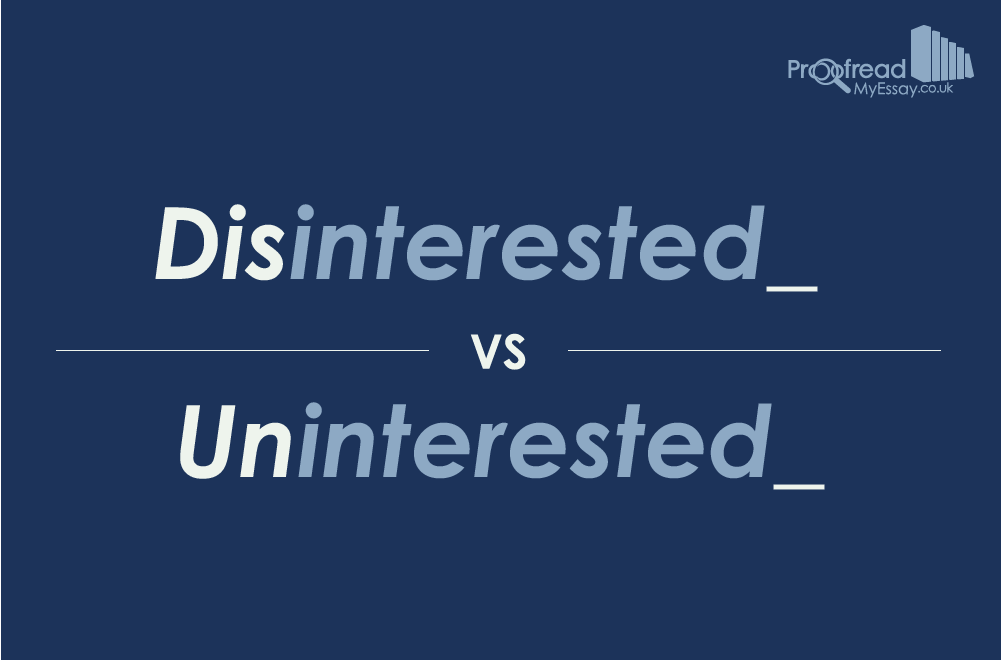In academic settings, being ‘disinterested’ is usually good; being ‘uninterested’, on the other hand, is very much a bad thing. As such, you wouldn’t want to mix them up.
But how can two words which look so similar (both are opposites of ‘interested’) have such different implications? In this blog post, we explain the crucial distinction.
Disinterested (Without Bias)
‘Disinterested’ is the opposite of ‘interested’ when ‘interested’ is used to mean ‘personally involved in or standing to benefit from something’.
Being ‘disinterested’ is therefore to be ‘unbiased by personal interest or advantage’:
Judges should remain disinterested so that defendants get a fair hearing.
If you work in the sciences, law or another field where objectivity is important, being ‘disinterested’ suggests you can put subjective desires and beliefs aside for the sake of accuracy and fairness.
Uninterested (Bored or Indifferent)
While a ‘disinterested attitude’ is something you would cultivate to ensure objectivity when conducting an experiment, being ‘uninterested’ is unlikely to be as productive. This is because ‘uninterested’ means ‘bored’:
Find this useful?
Subscribe to our newsletter and get writing tips from our editors straight to your inbox.
The experiment went wrong because my lab partner was completely uninterested in helping.
While being ‘disinterested’ involves putting aside one’s personal interests in the name of objectivity, being ‘uninterested’ simply involves not paying any attention. This is generally discouraged in a scientist.

Disinterested or Uninterested?
Although they seem similar (in that both are modifications of ‘interested’), ‘disinterested’ and ‘uninterested’ actually mean very different things.
The comparison between a ‘disinterested’ and an ‘uninterested’ scientist is a good one for remembering the distinction:
- A good scientist is disinterested and always strives to maintain objectivity.
- A bad scientist is uninterested and rarely bothers turning up to work.
As this shows, you don’t want to describe yourself as ‘uninterested’ when you mean ‘disinterested’! It’s therefore vital to pick your words carefully when using these terms.



